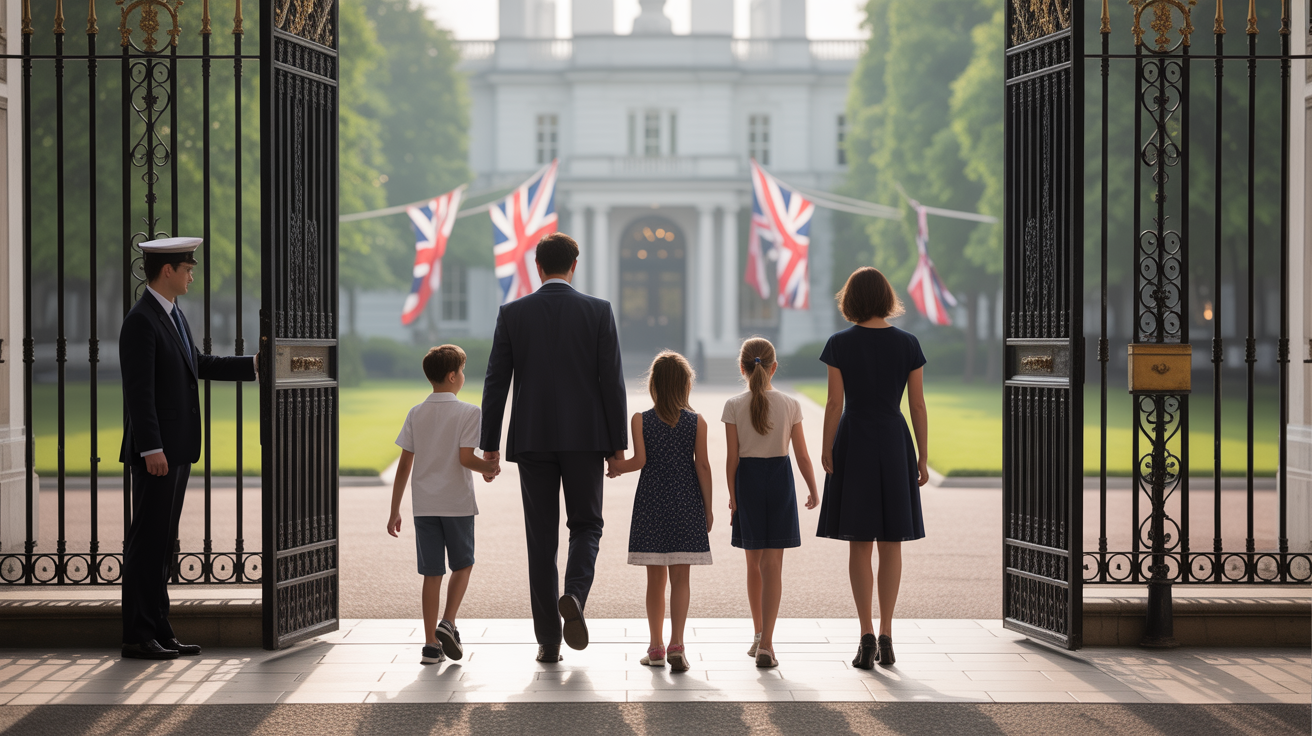The Ceremony You Didn’t Expect
Picture this: You walk into a British embassy in a foreign city. The Consul General greets you personally at the front gate—not with bureaucratic coldness, but with warmth. He escorts you into a private room that’s been prepared and dressed up specifically for this moment.
The room is formal. Your children stand beside you, watching.
The Consul General hands you a certificate of nationality. The national anthem plays. Your children witness the entire proceeding, understanding in real-time that they’re next—that what you’ve accomplished will pass directly to them.
This isn’t fantasy. This is what claiming citizenship by descent can look like when you discover that the passport you’ve been searching for was already waiting in your bloodline.
A Path People Miss
When most people think of getting a second passport, they imagine investing hundreds of thousands of dollars in property or making a donation to a Caribbean island nation. That’s one path—but it’s not the only one, and it’s certainly not the first place you should look.
The truth is: you might already qualify for a second passport through your ancestry.
The Math in Your Family Tree
The first step in any international diversification strategy is simple: look at your family history.
Think about it: You have 2 parents, 4 grandparents, and 8 great-grandparents.
That’s 14 individuals in just three generations. Fourteen potential connections to another country. Fourteen chances that someone in your direct lineage held citizenship somewhere else.
Many countries allow you to claim citizenship if one of your grandparents—or even great-grandparents—was born there. The net is wider than most people realize.
All it takes is a look to find out.
What This Actually Gets You
A second passport isn’t just a document. It’s not a status symbol or a novelty.
If you claim citizenship through ancestry—particularly from a European country—here’s what you’re actually receiving:
- Freedom of movement. An EU passport means the right to live, work, and travel freely across 27 countries without visas or permits.
- Access to world-class systems. EU healthcare, education, and social infrastructure become available to you and your family.
- Generational wealth. This isn’t just for you. Citizenship passes to your children and their children. You’re building an inheritance of options.
- A genuine escape hatch. When everything feels locked down in one country, you have somewhere else to go. Not theoretically—legally and permanently.
This is why ancestry-based citizenship isn’t just an option. It’s often the best option.
Quick Reference: Do You Qualify?
Here’s a simple way to think about it:
- Grandparent born in Ireland? → You likely qualify for Irish citizenship through the Foreign Birth Register
- Great-grandparent from Italy? → You might qualify for Italian citizenship (if no one naturalized elsewhere in between)
- Grandparent or great-grandparent from Poland? → You could qualify for Polish citizenship (if they never formally renounced)
- Hungarian ancestry? → Citizenship possible through great-grandparents (language test required)
- Lithuanian grandparent or great-grandparent? → Restoration of citizenship may be available
The rules vary by country, but the principle is the same: If your ancestors held citizenship, you might too.
Countries with Citizenship by Descent
Several countries make it possible to claim citizenship through your grandparents or great-grandparents:
- Italy — Allows citizenship through unbroken lineage, even back to great-grandparents. The key requirement: no one in the chain naturalized elsewhere before passing citizenship down.
- Ireland — Citizenship available if a grandparent was born in Ireland, registered through the Foreign Birth Register. Simpler process than Italy, but limited to grandparents.
- Poland — Descendants can claim citizenship through Polish ancestry. Requires proof that ancestors never formally renounced Polish citizenship.
- Hungary — Citizenship available through proven Hungarian ancestry, often to great-grandparents, but requires passing a basic language proficiency test.
- Lithuania — Restoration of citizenship if a grandparent or great-grandparent was Lithuanian.
There are many others, particularly across Europe and Latin America.
The Tradeoff: Time and Effort, Not Money
Let’s be honest about what this process requires.
This isn’t instant. It can take 4–5 years, depending on the country and how quickly you can gather documents. You’ll need birth certificates, marriage certificates, and death certificates across multiple generations—often from countries where record-keeping wasn’t perfect.
But here’s why it’s worth it: the costs are primarily administrative—legal help, document retrieval, translations, and government processing fees. You’re typically looking at $5,000–$15,000, not hundreds of thousands.
Break it down:
– Attorney fees: $3,000–$8,000
– Document retrieval and genealogical research: $1,000–$3,000
– Translations and apostilles: $500–$2,000
– Government processing fees: $500–$2,000
– Potential travel costs (consulate visits): Variable
Compare that to a $250,000 real estate investment for a golden visa or a $250,000 donation for Caribbean citizenship by investment.
The tradeoff isn’t money. It’s patience and persistence.

